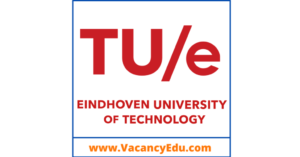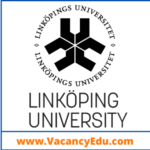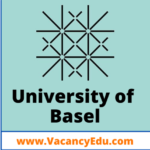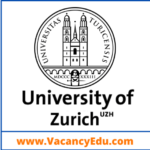Eindhoven University of Technology, Netherlands invites online Application for number of Fully Funded PhD Degree at various Departments. We are providing a list of Fully Funded PhD Programs available at Eindhoven University of Technology, Netherlands.
Eligible candidate may Apply as soon as possible.
(01) PhD Degree – Fully Funded
PhD position summary/title: PhD Mechanical Contact Information Processing of Soft and Large-area Robot Skin
The demand for autonomous robots capable of physically interacting with the world in flexible and adaptable ways is rapidly increasing across industries and society. These robots are needed to perform heavy, non-ergonomic tasks in unstructured environments or to assist humans in physically demanding jobs. Tactile robotics, an emerging and challenging field, focuses on developing tactile sensing and perception technologies that enable robots to intelligently respond to contact.
While significant progress has been made in finger-scale tactile sensing, challenges persist in developing soft, large-area robotic skin. A major hurdle is gathering sufficient contact information on the robot’s surface when the skin covers large, curved body areas with only a limited number of embedded sensors.
The important contact information, such as contact area, direction, pressure distribution, even slip incipient, is often not directly measurable. Instead, this information must be estimated from sensor signals produced by the mechanical model of the skin during contact. Advancing our understanding of this mechanical contact information processing is crucial for enhancing the feasibility and value of robotic skin technologies.
Deadline : 28-09-2025
(02) PhD Degree – Fully Funded
PhD position summary/title: PhD on AI Supply Chain Optimization Agent
Advances in OR have led to a broad industrial adoption of mathematical optimization technology to solve supply chain optimization problems. Despite that progress, a main remaining challenge is on making sure that the mathematical definition of the supply chain optimization problem matches the real-world problem. This is a task that lies with supply chain optimization experts, but has proven to be highly challenging, both before and after initial deployment of the resulting technology. Before initial deployment it can be hard to know you identified the right decisions, constraints, and objective functions. After deployment the real-world problem may diverge from the initial problem, making that the developed optimization technology no longer solves the real-world problem. We aim to develop combined AI and OR technology to help human supply chain optimization experts in getting to the right optimization problem and from that getting to the right optimization technology. This will support seamless deployment and adoption of the optimization technology, where human planners who review the proposed plans are in agreement on feasibility and quality of these plans.
The overarching objective of the “Learning and Explaining Supply Chain Optimization” project is to come to better and more robust supply chain optimization technology that is trusted by human planners so that high quality plans get fully adopted in practice. Improved supply chain optimization technology that is trusted by human planners leads to better plans with better adoption. This increases the obtained benefits from supply chain optimization by i) having better plans that use scarce resources in a more robust and efficient way, leading to more robust supply chains, shorter delays, less waste, and lower carbon footprint and ii) improving its introduction and adoption, so that business practice follows the proposed plans and potential benefits materialize. You would be working with three other PhD students in the project, so that you can benefit from each other’s expertise and research results.
Deadline : 14-09-2025
View All Fully Funded PhD Positions Click Here
(03) PhD Degree – Fully Funded
PhD position summary/title: PhD on Compact modelling of Positive Energy Districts
This research project is part of the EmPowerED project, which aims to accelerate and scale up the development of Positive Energy Districts (PEDs). PEDs are urban areas that generate more energy than they consume and carbon-neutral heating and cooling is a core element of their design. The design and realization of PEDs involves (complex interactions between) societal, technical, economical and regulatory factors. EmPowerED – Enabling Positive Energy Districts through citizen-centered socio-technical models for upscaling of the heat transition – seeks to tackle this challenge by involving key stakeholders (citizen groups, municipalities, housing associations, grid operators, technology/service providers) in the decision-making process by offering them a toolbox to explore and assess local heat solutions for PEDs. The EmPowerED project involves in total 11 PhD positions at several universities, focusing on different aspects of positive energy districts. The project also involves a large range of project partners, e.g. municipalities, building corporations and technology suppliers. At the core of the EmPowerED project are 4 case studies in different municipalities (the cities of Groningen, Nijmegen, Eindhoven and Tilburg).
The PhD project in this vacancy contributes to the development of the above EmPowerED toolbox by developing simulation models for individual physical components of a PED to be used as building blocks for integrated PED models, focusing on the residential heating system. This encompasses primarily thermal components like heat exchangers, heat-pumps, short-term (e.g. daily) and long-term (e.g. seasonal) heat-storage systems, aqua-thermal and geothermal heat sources and waste heat recovery (e.g., industrial waste heat reuse, sewage treatment plant) as components in a 5th generation district heating network. The key weakness of most models currently available and in use is their oversimplified description of physical, dynamic and nonlinear behavior. The principal goal of the PhD project is to develop component models with a greater physical accuracy and predictive capability by employing state-of-the-art methods for the following two modelling approaches:
- reduced-order models (ROMs) and input-output models derived from high-fidelity Computational Fluid Dynamics (CFD) models;
- data-based models determined from training/calibration data by system/parameter identification and machine learning.
Deadline : 05-10-2025
(04) PhD Degree – Fully Funded
PhD position summary/title: PhD on Computational Modelling of Porous Materials for Water Electrolyzers
We are seeking a motivated and creative PhD candidate to join our team to develop next-generation porous transport layers (PTLs) and microporous layers (MPLs) for Proton Exchange Membrane Water Electrolyzers (PEMWEs). The project will focus on building a multi-scale computational model to capture the complex transport of gases, liquids, and charges in these porous structures, including the complex interfaces between them. Insights from the model will directly guide the manufacturing and optimization of advanced PTL/MPL architectures, with the goal of improving efficiency, durability, and reducing precious-metal requirements.
This is a unique opportunity to combine modeling, simulation, and experimental validation while working at the forefront of electrochemical energy conversion and contributing to the global transition to green hydrogen.
Deadline : 29-09-2025
(05) PhD Degree – Fully Funded
PhD position summary/title: PhD on Economics of Science: Competition, Collaboration, and Scientific Discovery
How does competition shape the ideas we pursue—and the ones we leave behind? Can pressures for performance and funding reduce openness and limit the emergence of truly disruptive technologies? As a PhD candidate in the Technology, Innovation & Society (TIS) group at Eindhoven University of Technology (TU/e), you will work at the intersection of the economics of science, innovation, and science and technology studies to help answer these timely and fundamental questions.
The TIS group is an interdisciplinary and international team of scholars researching how societal challenges and technological change co-evolve. The TIS group research focuses on understanding the development and use of technology in a business and societal context. TIS primary research topics are in the knowledge economy, the economics of innovation, system innovation, and sustainability transitions.
Deadline : 01-10-2025
Polite Follow-Up Email to Professor : When and How You should Write
Click here to know “How to write a Postdoc Job Application or Email”
(06) PhD Degree – Fully Funded
PhD position summary/title: PhD on FEM Modelling of Sewer-Liner Failure under Chemo-Hygro-Mechanical Loading
In this PhD position, you will explore the long-term performance and failure mechanisms of sewer-liner systems subjected to complex environmental loads. Ageing, delamination, moisture infiltration, and chemical exposure are real-world challenges that impact urban infrastructure reliability. As a PhD researcher, you will develop a robust Finite Element Method (FEM) modelling framework to predict how these systems evolve—and eventually fail—over time. You will develop a comprehensive FEM-based modelling framework for sewer-liner systems that integrates advanced damage, plasticity, and fracture models, as well as ageing effects and coupled chemo-hygro-mechanical processes. This framework will be validated using experimental and inspection data and used to perform parametric studies on key design and environmental variables.
You will be part of the Applied Mechanics chair of the Department of the Built Environment at the Eindhoven University of Technology (TU/e), Netherlands, working closely with experimentalists and modelers to calibrate and validate your model with dedicated lab experiments. The PhD project is part of the EU-funded initiative AI:LINER – Data-Driven Sewer Asset Management, under the HORIZON-CL4-2024-TWIN-TRANSITION-01-12 programme, which brings together 13 participants and 15 associated partners from across Europe to advance the assessment, repair, and long-term resilience of civil engineering infrastructure. Your results will contribute to a broader study on the performance and lifetime of liner-sewer systems, helping municipalities and engineers design longer-lasting and more sustainable underground infrastructure.
Deadline : 01-10-2025
(07) PhD Degree – Fully Funded
PhD position summary/title: PhD on hierarchical diagnostics of complex dynamical systems
We invite highly motivated students with a strong background in dynamical systems, mathematical systems and control theory, and machine learning to apply for the PhD position within the Dynamics and Control section at the Department of Mechanical Engineering, Eindhoven University of Technology. The mission of the Dynamics and Control Section is to perform research and train next-generation students on the topic of understanding and predicting the dynamics of complex engineering systems in order to develop advanced control, estimation, planning, learning and diagnostics strategies which are at the core of the intelligent autonomous systems of the future: Designing and realizing smart autonomous systems for industry and society.
Complex dynamical systems, such as semiconductor equipment, consists of many interconnected modules, which are functionally, digitally and physically connected. The throughput of the equipment relies on continuous runtime while meeting stringent requirements on accuracy and performance. Therefore, monitoring the health of these systems is crucial, which is now largely performed by human experts. The aim of this PhD project is to design innovative monitoring algorithms for complex dynamical systems to automate fault isolation with provable diagnostics performance guarantees.
Current health monitoring technology is typically designed for either (i) individual system components/modules (which would require removing the component from the system, which is not possible in practice), or (ii) for the system as a whole. The first approach fails to account for the interaction between modules and its effect on the whole system. The second approach makes it challenging to isolate which module may be failing and how to zoom in on the part of the system what is the root cause of the failure. This PhD position will address this challenge by developing hierachical diagnostic tools for complex dynamical systems.
Deadline : 01-10-2025
(08) PhD Degree – Fully Funded
PhD position summary/title: PhD on Integrated Metaphotonics
We offer a PhD position in this fast-paced research field, embedded within a world-class research group.
The use of photonics for information processing is a key focus in optics research. Today’s optics emphasize ultra-compact designs, high integration, and rapid processing speeds. As a result, nanophotonics has been extensively studied for information processing applications over the past few decades.
Metaphotonics capable of manipulating optical wavefronts with arbitrary shapes have been suggested to couple light from PICs. In this research position going beyond this, focuses on the investigation of inverse optimization approach to obtain an optimally designed metastructures for tailoring guided waves and massive emergent applications which can be integrated in a photonic chip such as multiplexers, mode and/or polarization converters and isolators.
In this PhD project, you will explore integrated metaphotonics components for broadband wavelength demultiplexing across the UV to NIR spectrum. Your work will contribute to the development of compact, low-loss, and broadband photonic devices by: (a) investigating and designing advanced metaoptical structures, (b) introducing and applying novel design concepts such as topology optimization and adiabatic mode evolution with multicore waveguides, and (c) working towards the integration of these components onto photonic chips for applications in information processing, including on-chip image processing.
Deadline : 05-09-2025
Click here to know “How to Write an Effective Cover Letter”
(09) PhD Degree – Fully Funded
PhD position summary/title: PhD on Intelligent data-driven charge management system for future electrified mobility
We invite highly motivated students with a strong background in mathematical system theory, data science and control to apply for a PhD position within the Control Systems Technology (CST) section at the Department of Mechanical Engineering, Eindhoven University of Technology. The mission of the CST section is to develop new methods and tools in the area of Systems Theory, Control Engineering and Mechatronics. The research focuses on understanding the fundamental system properties that determine the performance of mechanical engineering systems, and exploiting this knowledge for the design of the high-tech systems of the future. In the Automotive research line, our research is committed to accelerate the introduction of smart and green mobility by self-learning control for future powertrains.
Driven by societal concerns about global warming and local air quality, the focus on electric vehicles continues to grow. To further accelerate their adoption, key challenges such as charging infrastructure, range anxiety, and affordability must be effectively addressed. For their control systems, this means energy efficiency, operational costs, vehicle range and battery life have to optimized while maintaining passenger comfort. In practice, the performance of charging strategies is limited due to model uncertainties and unknown disturbances. As a result, there is an urgent need for early anomaly detection (e.g. failure in thermal and battery system) and risk averse charging strategies. This project tackles the integration of early anomaly detection, prediction of long term vehicle usage, and charge management in electric vehicles using AI techniques. This is applied to an innovative, revolutionary use case: wireless charging method (so called Dynamic Wireless Power Transfer (DWPT)), enabling real-time, coordinated charging for multiple EVs during driving.
Deadline : 15-09-2025
(10) PhD Degree – Fully Funded
PhD position summary/title: PhD on material processing for sustainable batteries
There is an urgent need for high-performance batteries that offer improved safety, greater energy density, longer cycle life, and faster charging. However, conventional lithium-ion batteries rely on critical raw materials such as cobalt and nickel, use toxic solvents like NMP, and involve energy-intensive manufacturing steps. To make batteries more sustainable and scalable, the field is increasingly moving toward solid-state batteries and solvent-free electrode processing. At the same time, alternative binder materials that enable recyclability and avoid the use of PTFE are being investigated, though their processing and integration remain challenging.
This PhD project is part of a national, multidisciplinary research consortium aimed at developing the next generation of sustainable batteries (Sustainable Materials & Advanced Technologies for Circular Batteries – SMART C-BAT) which brings together leading Dutch universities, research institutes, and industry partners to accelerate the transition to circular, high-performance battery technologies.
In this PhD project, and in close collaboration with partners such as LionVolt and TNO, the overarching goal is to optimize both (i) electrode and (ii) electrolyte fabrication processes. The PhD candidate will focus on investigating structure-property relationships under relevant processing conditions to better understand the parameters that govern processability of these materials. By using state-of-the-art equipment to characterize the flow properties (rheology) of both slurries and dry powders, we will examine the processability of various formulations and analyze their impact on both the final cathode and electrolyte properties. This fundamental insight will help develop more scalable, manufacturable routes for future battery production.
Deadline : 07-09-2025
Connect with Us for Latest Job updates
(11) PhD Degree – Fully Funded
PhD position summary/title: PhD on mathematical modeling of scattering
The Computational Illumination Optics group is one of the few mathematics groups worldwide working on mathematical models of optical systems. They develop and analyze numerical methods to solve the resulting differential equations. The team has a healthy portfolio of PhD positions and close collaborations with industrial partners. It consists of four full FTEs at Eindhoven University of Technology and one part-time professor.
The group has three research tracks: freeform design, imaging optics and improved direct methods; for more details see https://martijna.win.tue.nl/Optics/. The following mathematical disciplines are important in our work: geometrical optics, ray tracing, (numerical) PDEs, transport theory, nonlinear optimization, Lie operators and Hamiltonian systems.
Deadline : 07-09-2025
Polite Follow-Up Email to Professor : When and How You should Write
(12) PhD Degree – Fully Funded
PhD position summary/title: PhD on Multi-physics modelling of long-term degradation behavior of composite liners
In this PhD position, you will dive deep into one of the key challenges in modern civil and materials engineering: predicting the long-term performance of fiber-reinforced polymer composites used as a liner in concrete sewer systems. You will develop a cutting-edge, multi-physics numerical model to describe how chemical and mechanical degradation—driven by acidity, moisture, and mechanical loading—affects the structural integrity of these composites over time. Your work will shed light on complex processes such as chain scission, hygroscopic swelling, and polymer-concrete interfacial failure, all under varying environmental conditions like humidity and temperature.
You will be part of the Applied Mechanics chair of the Department of the Built Environment at the Eindhoven University of Technology (TU/e), Netherlands, working closely with experimentalists and modelers to calibrate and validate your model with dedicated lab experiments. The PhD project is part of the EU-funded initiative AI:LINER – Data-Driven Sewer Asset Management, under the HORIZON-CL4-2024-TWIN-TRANSITION-01-12 programme, which brings together 13 participants and 15 associated partners from across Europe to advance the assessment, repair, and long-term resilience of civil engineering infrastructure. Your results will contribute to a broader study on the performance and lifetime of liner-sewer systems, helping municipalities and engineers design longer-lasting and more sustainable underground infrastructure.
Deadline : 01-10-2025
(13) PhD Degree – Fully Funded
PhD position summary/title: PhD on NMR and CT imaging phase change materials in heat storages
In your project, you will contribute to compact short term (daily) heat storage based phase change materials (PCM), by in-situ investigation of crystallization/melting processes in heat storage devices. Your research questions will be: Where does crystallization happens in a device and how does this impact power output? How can Magnetic Resonance Imaging (MRI) and X-ray Computed Tomography (CT) be used to visualize and analyze in-situ processes (e.g. phase transitions, flow dynamics, stratification) inside thermal storages containing PCMs? How can we describe via validated multi-physics simulation models; heat transfer, flow behavior, and phase changes?
Your task is to investigate localized flow and crystallization processes of PCMs in devices under different conditions with advanced 3D imaging tools like CT and NMR imaging, and to couple this with performance characteristics of the device like power, cyclability, partial discharge/charge and stratification. You will make use of unique infrastructure at the DarcyLab at Eindhoven University of Technology, where advanced imaging techniques such as Magnetic Resonance Imaging (MRI) and X-ray Computed Tomography (CT) enable in-situ visualization of flow and phase change processes. Your task will also be translating the experimental results in physical models describing the observed processes.
Deadline : 05-10-2025
(14) PhD Degree – Fully Funded
PhD position summary/title: PhD on Numerical Modelling of Subsurface Erosion in Dikes and Geothermal Wells
In this PhD position, you contribute to a high-impact research project that combines advanced modelling with lab-scale experimentation to better understand and predict subsurface erosion phenomena.
Subsurface erosion—often invisible until it causes catastrophic damage—poses major risks to buried infrastructure. In this PhD project, you will investigate two pressing real-world challenges: sand production in geothermal boreholes and backward erosion piping in dikes. Both processes are driven by internal erosion mechanisms, which will be studied by developing and extending coupled hydro-mechanical erosion models.
This research simulates subsurface erosion in geothermal wells and dikes with advanced finite element models calibrated through small- and medium-scale laboratory experiments. It investigates the effects of soil properties, flow paths, and scale, aiming to develop practical prediction tools for engineering applications.
You will be part of the chairs of Applied Mechanics and Engineering Thermodynamics for Energy Systems at the Eindhoven University of Technology (TU/e), Netherlands. You will work closely with experts in numerical simulations, soil mechanics and geotechnical modelling. Your work will help safeguard infrastructure, improve geothermal energy systems, and enhance flood protection strategies—contributing to climate-resilient, sustainable development. You will be part of a supportive, inclusive, and multidisciplinary team tackling real-world problems with global relevance.
Deadline : 01-10-2025
(15) PhD Degree – Fully Funded
PhD position summary/title: PhD on Physical Layer Security for Laser Satellite Communications
We foresee a future where lasers light up the sky to enable high-bandwidth and secure communications to every corner of the Earth. Thanks to the low divergence of laser beams, these optical/infrared signals are much harder to intercept and to jam in comparison to conventional radio communications. However, more security guarantees are needed. Therefore, in this project we invite you – as a candidate PhD – to join the research on physical layer security schemes for free space optical (FSO) channels. Join the information and communication theory lab (ICT Lab) on this exciting EU research project with prestigious institutes, observatories and companies throughout Europe.
Quantum key distribution over satellite networks is envisioned as part of the core infrastructure for future long-distance, resilient, secure communications. Though the optical losses in the free space optical channel are considerably less than in the fiber channel, for large distances, the secure key rates are still very limited. This means in practice that the number of keys, the length of the keys and the rate with which they can be refreshed is limited. To overcome this and enhance the security, in addition to quantum key distribution, classical (optical) key distribution can take place. The classical key distribution can be added – on top of the quantum key distribution – and inherits its security thanks to the low-divergence of laser beams and by exploiting physical optical channel properties and smart two-way handshakes.
As a PhD candidate, you are asked to perform research in this area and come up with innovative concepts. The research includes FSO channel modelling, performing secrecy/capacity analysis for this FSO channel, performing comparative analysis between various methods in terms of their performance, and devising novel physical layer security schemeswith the aim to enhance the security, enable higher secure key rates and longer-distance secure communications.
Deadline : 21-09-2025
(16) PhD Degree – Fully Funded
PhD position summary/title: PhD on Safe AI for Organ Allocation at Eurotransplant
We are looking for a strong, motivated PhD-student with an analytical, algorithmic background who is interested in pursuing a PhD-project devoted to the allocation of donor organs to patients. The goal of this project is to is to design and evaluate organ allocation mechanisms, with a particular focus on the efficiency and fairness of Eurotransplant’s liver allocation system.
The project is in cooperation with, and partially funded by, Eurotransplant. The project has a large applied component, as results on Eurotransplant donor and patient populations can inform Eurotransplant policies.
The position is for a period of 4 years at the Eindhoven University of Technology, Department of Mathematics and Computer Science. The student’s working locations will be at Eindhoven University where the PhD candidate will be supervised by experts in combinatorial optimization, machine learning and fairness-awareness in algorithmic decision support, and the Eurotransplant headquarters in Leiden, where access to the domain expertise and real-world data and its interpretation is accessible for the project team.
We are looking for a student with a strong background in at least one of the following subjects: statistics, machine learning, discrete optimization, operations research. A strong interest in the medical and health policy aspects of the project are a plus. An interest in both technical and socio-technical aspects of effective and fair organ allocation is encouraged.
Deadline : 05-10-2025
(17) PhD Degree – Fully Funded
PhD position summary/title: PhD on Sustainable Polymers and Coatings for Low Temperature Fuel Cells
We are looking for a motivated and creative PhD candidate to join our team in developing next-generation polymers and coatings for low-temperature fuel cells. Today’s fuel cells rely heavily on fluorinated polymers—such as Nafion ionomers for proton conductivity or PTFE coatings for water management. However, per- and polyfluoroalkyl substances (PFAS) pose severe environmental hazards and persist in ecosystems, making their replacement urgent and essential.
In this project, you will pioneer new strategies to replace conventional hydrophobic coatings and ionomers. Using advanced grafting techniques, you will explore a wide range of molecular groups to precisely tailor liquid repellency and proton conductivity on conductive surfaces. Alongside polymer synthesis, you will employ state-of-the-art characterization methods and test your materials in realistic fuel cell devices, in close collaboration with industrial partners.
Deadline : 29-09-2025
(18) PhD Degree – Fully Funded
PhD position summary/title: PhD on Symmetric Cryptography over Prime Fields and Integer Rings
Symmetric-key cryptography is of vital importance in the field of cybersecurity and data protection, offering tools for data encryption and authentication. While public-key cryptography is crucial for exchanging the key or signing data, symmetric cryptography guarantees better performance and faster speed for encrypting data.
Without doubt, AES (Advanced Encryption Standard) and Keccak/SHA-3 (Secure Hash Algorithm 3) are the two most used and famous symmetric cryptography algorithms. Winners of the standardization processes sponsored by the U.S. National Institute of Standards and Technology (NIST), they are currently adopted by the U.S. and the European governments. As the majority of the symmetric primitives, they are designed to naturally operate over bits, in order to maximize their performances in Software and Hardware implementations.
At the current state of the art, this design approach is showing all its limits when those symmetric primitives are used in new emerging contexts, such as rising applications of practical importance including Format Preserving Encryption (FPE), Multi-Party Computation (MPC), Homomorphic Encryption (HE), and Zero-Knowledge (ZK). These applications are usually defined over prime finite fields, and more recently, even over integer rings. In order to work, such protocols and applications rely on the evaluation of symmetric cryptographic primitives (such as ciphers and hash functions), whose details have a crucial impact on the performances of the considered application/protocol. From this point of view, using a symmetric primitive naturally defines over the bits for performing operations over prime fields or integer rings represents a significant bottleneck in terms of performances.
As part of this project, your work will consist in designing and analyzing dedicated symmetric-key primitives operating directly over prime fields and/or integer rings, that can provide efficient solutions for rising applications of practical importance such as FPE, MPC, HE, and ZK. Due to the novelty of these symmetric primitives, special attention will be given to their security, with the goals of better understanding their security margin, and of proposing new innovative security arguments. (We highlight that the implementation of those schemes will not be part of the tasks of the PhD candidate.)
Deadline : 12-10-2025
(19) PhD Degree – Fully Funded
PhD position summary/title: PhD on Synthesis of Advanced Electrodes for Redox Flow Batteries
We are looking for a motivated and creative PhD student to join team at TU/e. This project (SPACER) aims to develop new architectures for porous electrodes to improve the power density and energy efficiency of redox flow batteries (RFB), enabling affordable and durable long-duration energy storage. The approach is to use hierarchical structures, i.e. complex material layers that can be optimized to specific battery chemistries and flow phenomena from the microscale up. The developed technologies will be validated in half-cells and full working batteries at industrial partners at TRL 6.
In this specific PhD project, we are aiming to use advanced manufacturing techniques (lithography-based) to manufacture highly controlled three-dimensional electrode structures. Strong collaboration is expected with other project partners in areas such as multiscale modelling of porous electrodes, advanced imaging and characterization, and validation in electrochemical cells. Marie Skłodowska-Curie Doctoral Networks are joint research and training projects funded by the European Union. Funding is provided for doctoral candidates from both inside and outside Europe to carry out individual project work in a European country other than their own. The training network “SPACER” is made up of 21 partners, coordinated by Fraunhofer ICT in Germany.
Deadline : 29-09-2025
How to increase Brain Power – Secrets of Brain Unlocked
(20) PhD Degree – Fully Funded
PhD position summary/title: PhD Position double degree TU Eindhoven / TU Darmstadt on Terahertz Phototransistors
How can we unlock the potential of terahertz (100 GHz–10 THz) waves for transformative applications in security, medical imaging, and wireless communication? In this PhD project, you will pioneer novel phototransistor technology to generate and amplify terahertz radiation with unprecedented efficiency. Your core challenge: designing, fabricating, and characterizing semiconductor devices that convert laser light into high-power terahertz signals—bridging a critical gap in today’s photonic systems.
Deadline : 14-09-2025
About Eindhoven University of Technology, Netherlands –Official Website
The Eindhoven University of Technology is a public technical university in the Netherlands, located in the city of Eindhoven.
The University has been placed in the top 200 universities in the world by three major ranking tables. The 2019 QS World University Rankings place Eindhoven 99th in the world, 34th in Europe, and 3rd in the Netherlands – TU/e has moved up 59 places in this world ranking since 2012 (in two other main world rankings it is 167th and 51-75th). As of 2020, the foundation employs over 800 people, with annual revenues in excess of €686 million.
TU/e is the Dutch member of the EuroTech Universities Alliance, a strategic partnership of universities of science & technology in Europe: Technical University of Denmark (DTU), École Polytechnique Fédérale de Lausanne (EPFL), École Polytechnique (L’X), The Technion, Eindhoven University of Technology (TU/e), and Technical University of Munich (TUM).
Disclaimer: We try to ensure that the information we post on VacancyEdu.com is accurate. However, despite our best efforts, some of the content may contain errors. You can trust us, but please conduct your own checks too.
Related Posts
- 12 PhD Positions-Fully Funded at Linkoping University, Sweden

- 11 PhD Positions-Fully Funded at Maastricht University, Netherlands

- 07 PhD Positions-Fully Funded at University of Basel, Switzerland

- 11 PhD Positions-Fully Funded at University of Southern Denmark, Denmark

- 18 PhD Positions-Fully Funded at Inria, France

- 10 PhD Positions-Fully Funded at University of Stavanger, Norway

- PhD Positions (16)-Fully Funded at University of Zurich, Switzerland

- PhD Positions (08)-Fully Funded at University of Bergen, Bergen, Norway

- PhD Positions (05)-Fully Funded at Wageningen University & Research, Netherlands











